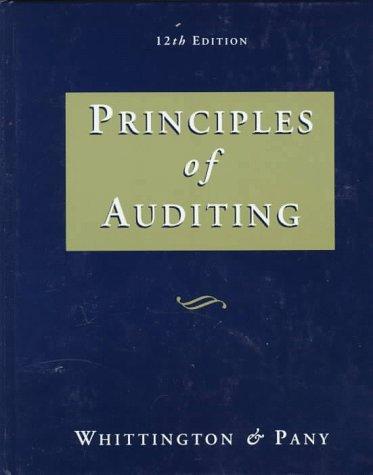Question
2. The Borg, Inc. acquired property on the planet Zygon. Borg paid $300,000 for the property. The Borg held the property for 10 years during
2. The Borg, Inc. acquired property on the planet Zygon. Borg paid $300,000 for the property. The Borg held the property for 10 years during which time the Borg collectively estimated that the property appreciated in market value approximately $10,000 per year. At the end of year 10, the Borg sold the property for $400,000. Which of the following is a true statement concerning this information under Generally Accepted Accounting Principles? (Hint: think about monetary versus non-monetary assets).
a. Borg should recognize $10,000 of appreciation each year as the property increases in value. When the land is sold at the end of the 10th year, cash would go up by $400,000 and land would go down by $400,000.
b. Borg cannot recognize appreciation in the value of the land. When the land is sold at the end of the 10th year, cash would go up by $400,000 and retained earnings would go up by $400,000.
c. Borg cannot recognize appreciation in the value of the land. When the land is sold at the end of the 10th year, cash will go up by $300,000 and land will go down by $300,000.
d. Borg cannot recognize appreciation in the value of the land. When the land is sold at the end of the 10th year, cash will go up by $400,000, land will go down by $300,000 and equity will go up by $100,000.
e. None of the above. The Borg would never pay for something. They would just take it and assimilate the previous owner into their hive mind. Resistance is futile.
Step by Step Solution
There are 3 Steps involved in it
Step: 1

Get Instant Access to Expert-Tailored Solutions
See step-by-step solutions with expert insights and AI powered tools for academic success
Step: 2

Step: 3

Ace Your Homework with AI
Get the answers you need in no time with our AI-driven, step-by-step assistance
Get Started


